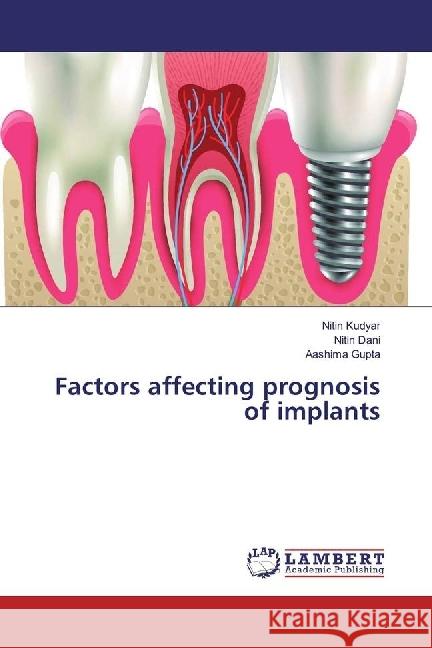Factors affecting prognosis of implants » książka
Factors affecting prognosis of implants
ISBN-13: 9786202015806 / Angielski / Miękka / 2017 / 164 str.
In general, dental implants serve as abutments or retainers for dental restorations. The primary trigger for reconstructive treatment is normally the patient's subjective perception of whether or not they need treatment. Generally, this is based on how great the impact of any functional, aesthetic or psychological impairment is to them. From a professional point of view, replacement of any absent tooth (except for third molars) can be reasonable. During the last decades careful scientific documentation has provided a solid base for implant therapy as a reliable treatment modality to replace lost teeth. Today we know that treatments including implant-supported single crowns or fixed partial dentures as part of a comprehensive therapy will generally have a good prognosis when performed on the correct indications and followed by proper oral hygiene measures and supportive care. Factors that could determine the prognosis of implants are: Periodontally compromised patient, Age, Bone-density, Occlusion, Smoking, Genetics, Systemic-diseases, Microorganisms, Antibiotics, Type of implants.











